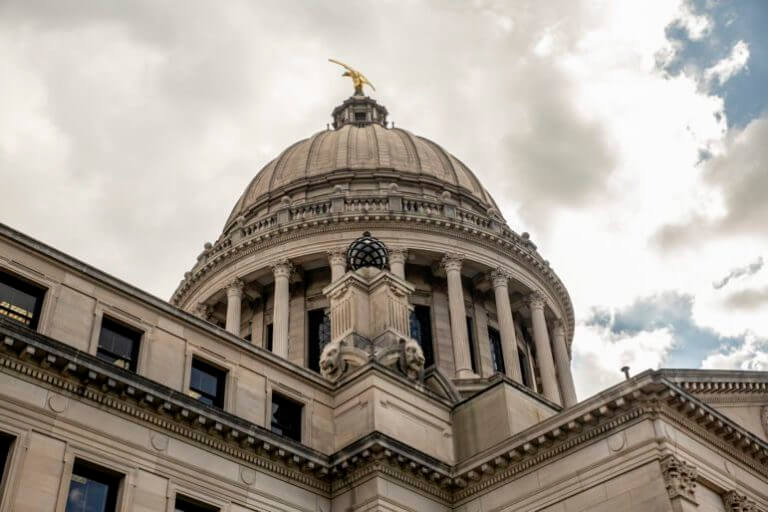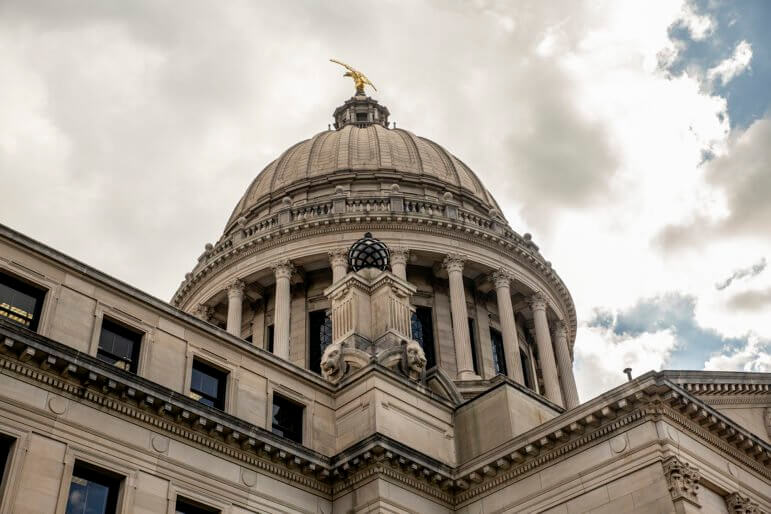
Lawmakers do not have to wait for a special session called by Gov. Tate Reeves to return to Jackson to deal with his veto of more than $2.2 billion in funding to the local school districts, according to various legislative sources.
Legislators could reconvene on their own under the conditions of the resolution they passed extending the session until Oct. 10.
“If he (Reeves) decides not to call us back, we would have to consider all options available,” said House Pro Tem Jason White, R-West, when asked about the possibility of coming back on their own. “The education budget is more than a little bit significant. The education folks are concerned – rightfully so. They want some finality to their budget.”
Reeves has said he is waiting to call legislators back into special session to deal with the education veto and the lack of funding for the Gulf Coast-based Department of Marine Resources until the COVID-19 outbreak amongst legislators is quashed. About 30 legislators tested positive for the coronavirus, including both presiding officer Philip Gunn in the House and Delbert Hosemann in the Senate. Most tested positive in early July.
In recent days legislative leaders have said most of their members have recovered and they are ready to return to the Capitol in early August to deal with the education budget, the Marine Resources budget and other issues.
Reeves is being non-committal on when he might call them back.
“We are looking to bring them back at the right time when it is safe for everyone for them to come back,” Reeves said recently on the Paul Gallo radio show.
The state constitution gives the governor the sole authority to re-convene the Legislature in special session once lawmakers adjourn the regular session for the year. Normally, regular sessions begin in early January and conclude in March, April or May.
But because of the pandemic, this is not a normal year. In June, legislators passed a resolution (requiring a two-thirds majority) to give them the authority to reconvene up until Oct. 10 to deal with coronavirus issues. Under the resolution, legislators could only return if the federal regulations changed on how the state could spend $1.25 billion in federal funds to combat the coronavirus.
Various leaders say regulations have changed, giving legislators the reason and the authority to re-convene.
Once they are in session, they could address the vetoes or other issues with a two-thirds vote to change their rules. But a key is the resolution only allows them to return for six days, though, that also could be changed once they are in session.
Regardless of whether Reeves will call legislators back in special session or they will return on their own, it is clear the veto of the education budget has stirred more contention and distrust between lawmakers and the governor.
The legislative and executive branch have been at odds this session – the first of Reeves’ gubernatorial term – on multiple issues, including who should have authority to spend the $1.25 billion in federal funds to whether the Legislature should remove the state flag, which includes the Confederate battle emblem in its design, without a vote of the people. On both of those issues, Reeves acquiesced.
Reeves maintained that he vetoed the education budget because legislators refused to fund the School Recognition Program, which provides merit bonuses to teachers and other certified staff in top performing and improving school districts.
“The governor did not have to veto that bill,” White said.
House Education Chair Richard Bennett, R-Long Beach, sent Reeves a letter promising that House and Senate leaders would send a letter to the Department of Education instructing them to fund the program and the department would be reimbursed for the expenditure in the new regular session in 2021.
But on the Gallo radio show, Reeves said, “I just can’t wait for a letter. I have to do what is right for those teachers. There is much evidence that it was not at all a mistake.”
Reeves questioned how it could have been “an oversight” not to fund the program since it was in the original legislation passed by the House and Senate, but was removed in the final days of the session by the legislative leadership.
“There was an error made,” Hosemann, the lieutenant governor, told Mississippi Today this week. “I appreciate the governor catching that, but vetoing a good bit of the budget was not the appropriate thing to do.”
Legislators say the funding was removed because they thought since state testing did not occur this past school year because of COVID-19 there would be no way to fund the program. The program funds are disbursed based on the schools’ accountability ratings, and since state testing did not happen there would be no way to determine who was entitled to the funds.
But after the education budget was passed, Bennett and other legislators said they learned the funds would be disbursed to teachers based on accountability results from the 2018-19 school year, meaning there was a method to determine who should receive the funds and a previous promise was made to provide the funds to teachers in the top schools and improving schools.
But not knowing in June the School Recognition Program was based on results from two years ago, legislators, facing difficult budget decisions caused by the pandemic, opted to transfer the Teacher Recognition Program funds (about $28 million) into the Mississippi Adequate Education Program. MAEP provides most of the state support for the basic operation of schools, such as teacher salaries and utilities costs.
Reeves maintains an official opinion issued by former Attorney General Jim Hood gives him the authority to provide funds to the school districts because the Constitution mandates a Mississippi public school system. That mandate, Hood reasoned, must be carried out with or without a legislative appropriation.
But educators have expressed concerns about the uncertainty of their budget situation. Various reports indicated that school districts began receiving payments from the state this week.
Whenever the Legislature returns, members also will have to decide whether to try to override a veto of a bill designed to provide the state Parole Board with more options to release inmates and whether to override a partial veto of a bill disbursing federal funds to health care providers to combat COVID-19.
Questions exist as to whether the partial veto of the health care bill is constitutional. The state constitution gives governors the authority to partially veto appropriations bills, but past rulings by the Mississippi Supreme Court have placed restrictions on that authority.
The Legislature left on July 1 with the intention of coming back because they could not agree on a budget for Marine Resources, which provides regulatory and law enforcement services in the Gulf of Mexico.
The post Legislators don’t need Gov. Reeves to call a special session to return to the Capitol, sources say appeared first on Mississippi Today.
- ‘It’s incredibly disappointing.’ Teacher pay raise bills die from politics in Legislature - March 3, 2026
- He was supposed to get married. But in a Mississippi ICE facility, he was told ‘no.’ - March 3, 2026
- Currie revives prison health care bills set to die in Senate, vows to continue fight - March 3, 2026
